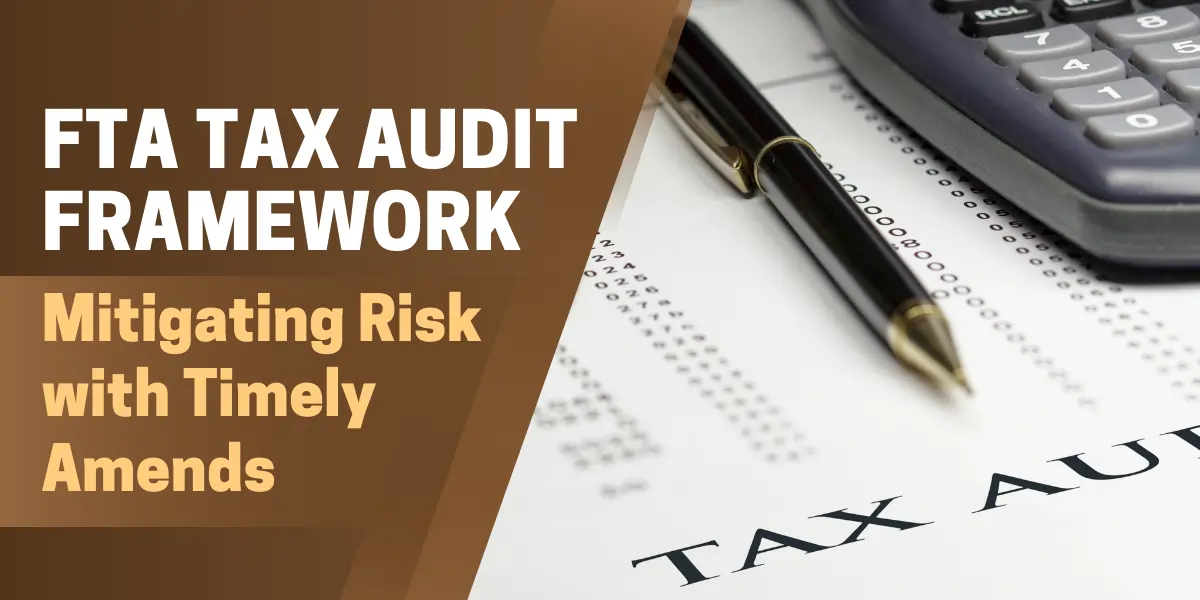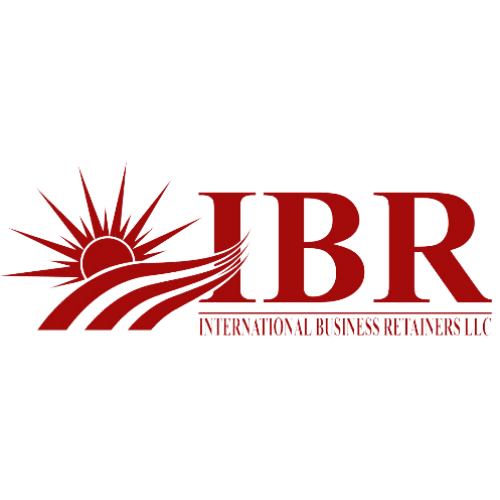
FTA Tax Audit Framework – Mitigating Risk with Timely Amends
Value Added Tax (VAT) was implemented by the UAE government in 2018. Businesses should always be ready because the FTA has the authority to do an unforeseen tax audit at any time. The FTA is authorized by federal tax legislation to conduct tax audits on any person or company in order to verify compliance with applicable laws. Don’t get caught off guard by a UAE FTA tax audit! Learn how the framework works & minimize risk with proper record keeping.
What Does an FTA Tax Audit Entail?
In the UAE, the FTA performs tax audits that include the following:
• A thorough examination of the organization’s accounting records, VAT return filings, and financial data.
• Verify that the person has accurately determined and reported their tax obligation.
• Ensure that the organization follows all applicable laws and guidelines.
Keep in mind that the FTA can examine a company’s financial records without a specific justification. They can perform random checks or audits if they believe a particular organization is not complying with certain rules. Since the FTA only gives businesses five days to reply to inquiries, they should be prepared for these kinds of audits.
Companies must also ascertain correct tax status for transactions that are outside the purview of their business, as well as for transactions that are standard-rated, zero-rated, and both. Other important duties consist of the following:
• Verify that the system contains thorough financial data records up to the point at which they have submitted VAT reports.
• Ensure that the relevant ledgers and VAT returns are properly reconciled.
• Preserving customized records along with the necessary supporting documentation.
Procedures for FTA Tax Audits
• To choose which businesses or people should be audited, FTA may use risk-based selection criteria.
• The FTA has the right to carry out tax audits at any location where a firm conducts operations, including their physical office and the organization’s grounds.
• Field audit notification: If the FTA chooses to audit a company on its property, they are required to provide the company five days’ notice of the audit.
• 72-hour temporary closure-With notice, a tax auditor may direct a taxpayer to temporarily close his firm for a maximum of 72 hours if:
a. The tax authorities possess strong proof that the person whose accounts are being examined is dodging taxes.
b. A tax auditor believes that the accuracy and effectiveness of the tax audit will be hampered if the place of business is not temporarily closed.
• The tax auditor may issue an order for a business to temporarily close if the authorities give written consent to do so from the director general (DG).
• The public prosecutor must grant approval for cases requiring in-person visits to homes.
• Assume that a company must close for more than 72 hours, or around three days. In that scenario, the tax auditor needs a public prosecutor’s approval.
• If auditors receive an application from the DG, they may file a lawsuit against the organization.
• Following the start of the tax audit, the company in issue needs to submit the necessary data in the format allowed by the FTA. Depending on the type of transaction, such as aggregate data on sales, purchases, input/output VAT, etc., a VAT return is a box-by-box summary.
Rights of the Audited Person
• Request that the tax auditors show their identity cards.
• Provide a copy of the notice of the tax audit.
• Participate in the tax audit, which takes place off the FTA’s property.
• Obtain copies of any original paperwork or documents seized by the FTA.
Finalization of FTA Tax Audit
- After the audit, the taxpayer will receive information from the FTA regarding the findings in 10 days, or roughly one and a half weeks.
- The taxpayer has the ability to see or acquire the papers utilized by the FTA in the course of conducting an assessment.
Disclosure on a voluntary basis
• In the event that taxpayers inadvertently break rules or make mistakes, the FTA encourages them to make voluntary reports.
• To prevent expensive fines, entities need to take a proactive stance when dealing with errors or mishaps. To inform the FTA of mistakes, tax return omissions, tax assessments, or requests for tax refunds, a taxable entity must voluntarily disclose the information.
How can a business identify inconsistencies or mistakes in tax returns that have already been filed?
Companies should perform health checks on previously filed tax returns or VAT audit assessments. Give a reputable tax agency the task of conducting a VAT audit review; they will assist your business in fixing any significant mistakes or omissions in your VAT filings. But you have to make sure the concerned tax agency has FTA approval.
• When FTA does tax assessments, adherence to a simplified procedure such as the one described above will minimize the likelihood of mistakes and fines. Additionally, these procedures will guarantee that your clients experience no VAT-related issues. Your company will grow and your reputation will not fade.
IBR Group: What Can We Do To Help You?
With over 10 years of experience in a variety of financial services areas, including VAT consultancy, Business setup in Dubai, ESR guidance, advisory services, accounting and finance, outsourcing, CFO, and most crucially, audit & assurance services, IBR Group is a well-known brand in the United Arab Emirates.
Because we have been in the industry for so long, we are familiar with the several facets of auditing, such as making sure FTA compliance is appropriate and keeping correct records. Our prompt counsel and direction can help you stay out of trouble and improve your reputation.
As a registered organization, we are able to carry out statutory audits for companies to make sure they meet the standards set by banks, regulatory agencies, free zones, and management. Our rational strategy makes use of data analysis and verification to uncover dangers and opportunities for improvement while giving you insightful information.
